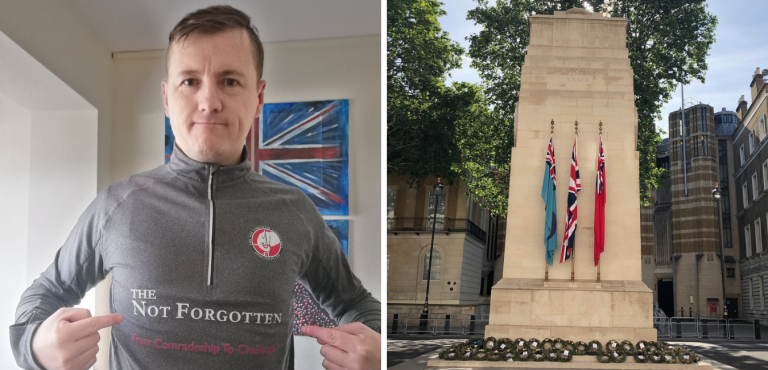International Women’s Day – Katy’s Story
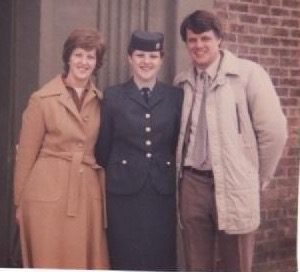
Katy Jones-Cole served for six years in the RAF as a Senior Aircraftwoman in the late 1980s and early 1990s. She had always wanted to join the military and loved the camaraderie of RAF life and the self-discipline and tenacity it taught her. However she also experienced challenges and frustrations as a female at that time, which led to disillusionment and her leaving the service…
She shared her story with us.
“I always had a feeling that I wanted to join the Forces because my Mum was in the Wrens. I wanted to join the Navy, and was a Sea Cadet in readiness, then when the Falklands Conflict happened that cemented my will to join up.” However in 1984 Katy marched confidently into a Navy recruitment office only to be told the Wrens were not recruiting 16-year-olds and to come back when she had more life experience.
Leaving with her tail between her legs fate intervened as it so often does, for next door Katy spotted the RAF recruiting office – who immediately snapped her up and sent her off for basic training then trade training. Katy’s aptitude was recognised, and she was selected to learn Morse Code and for accelerated promotion, passing out as a Senior Aircraftwoman.
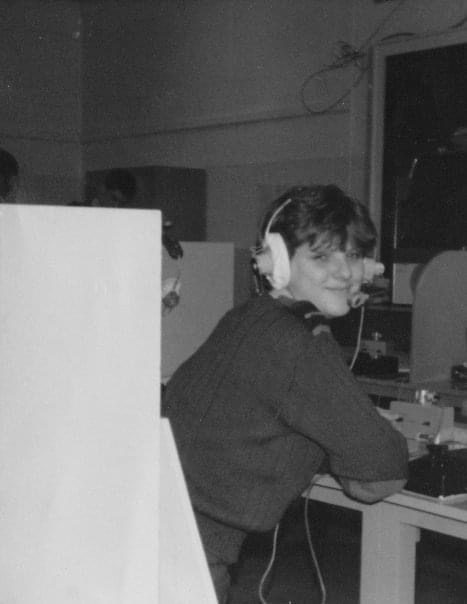
Having joined the Air Force to see the world, ironically Katy’s first posting was to RAF Upavon which was the closest base to her family home! After two years there which she looks back on with great fondness as full of camaraderie (“because it was in the middle of nowhere”!) Katy was then posted with her RAF husband to Rheindahlen in Germany for three years where she served as a telecoms operator. Unfortunately at this point some disillusionment with her experience set in…
“I realised on that posting that the military was not a married woman’s life. I was quite badly bullied in Germany – I didn’t realise it at the time but looking back I can see it. I was the only female on my shift, and they used me as a skivvy. I had to do all the cleaning and all the cooking, but very little of the actual qualified work I came to do. My flight sergeant – the biggest bully – told me his daughter was joining up, but specifically as a stewardess because that was a suitable woman’s job. His own daughter! That summed him up.”
Katy began to perceive that “different expectations of behaviour were applied to men and women – If men got drunk it was just ‘japes’ whereas if a woman did it was completely disgusting. My civilian friends couldn’t believe some of things I was expected to do”. Female recruits were discouraged from many trades in the Air Force even if they would have excelled in them, and other trades blatantly discriminated between men and women – one of Katy’s female friends served as a ‘Kennel Maid’ while her male colleagues were Dog Handlers. Men in more traditionally ‘female’ postings such as admin were promoted very quickly above the women. Although there were some exceptions – “We had a female tecchie posted into Rheindahlen, and what a coup that was! Who knew women had brains!”
Katy’s was one of the first WRAF cohorts to be weapons-trained, but even that was on lighter, easier-to-load sub-machine guns rather than self-loading rifles.
It also became clear to Katy that as a woman she was not going to be given the same chance at promotion as her male peers. “As soon as you were married the attitude towards you changed. You were just going to have babies soon so you weren’t worth investing in for a real career. I can’t think of any married woman in my time who got higher than Corporal. And as for pregnancy, that was you immediately discharged.”
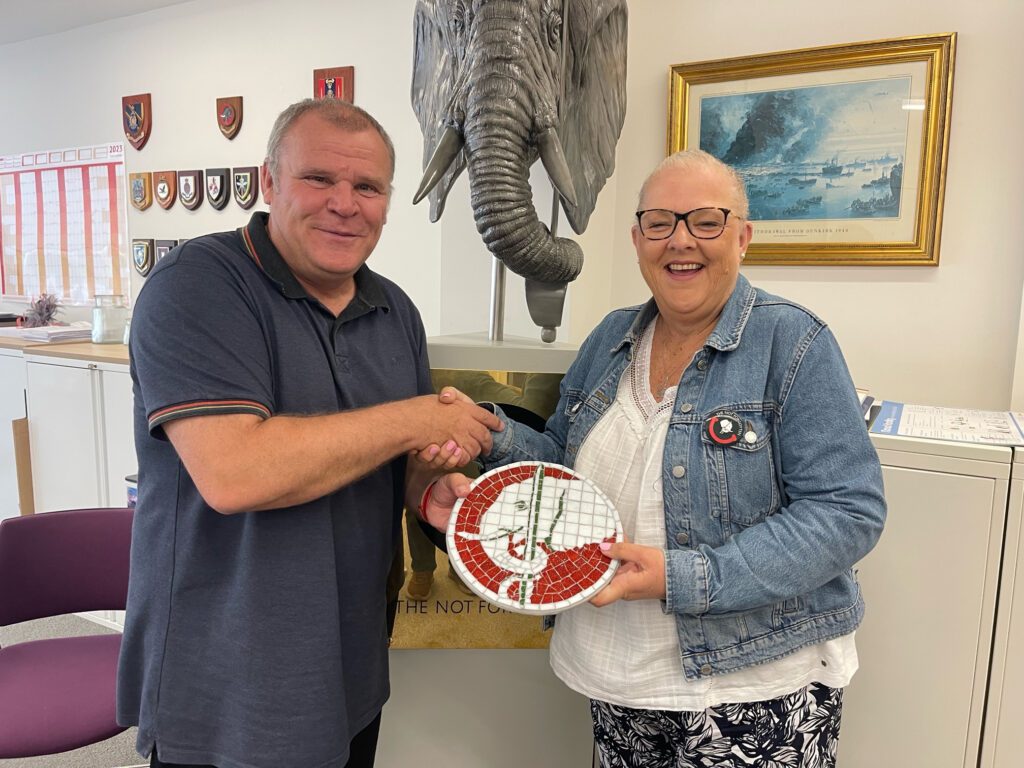
The straw that broke the camel’s back for Katy was when she was being assessed for promotion to Corporal and her Warrant Officer’s feedback was ‘You’re not going to get promoted because you’ve put on weight.’
“I was perfectly fit and a decent BMI, whereas the officer telling me this must have been 20 stone and nicknamed Roly Poly! I decided then that enough was enough and I left.”
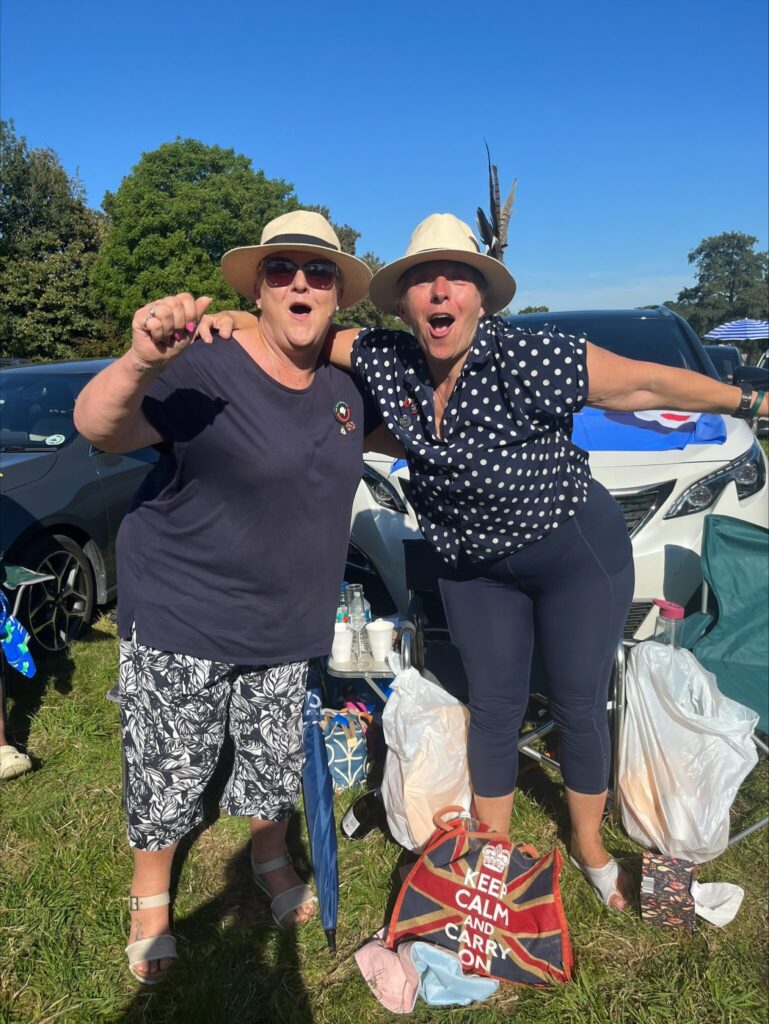
Despite this disillusionment Katy does look back on her time in the RAF with positivity too – there were many happy moments, and she continues to be very proud that she served. Her stand-out memories include a detachment to Kenya where she was part of the welcoming party for (the then) Prince Charles, and as a veteran Katy has been instrumental in advising on the setting up of the Veterans’ Gateway and establishing Southampton’s first Armed Forces Day in 2018.
Retraining in civilian life as a nurse while holding down part-time jobs and raising children was testament to her RAF training – “I’m certain my time in the RAF prepared me for that – the self-discipline and self-respect, tenacity and determination; getting stuck in and sticking with it.”
She also still values the unique camaraderie of military life; still in touch with a lot of her RAF friends, she describes a “sisterhood amongst the female veterans – as ex-WRAF you feel like sisters, and the WRENs and WRACs are like our cousins…”
And Katy’s advice for young women in the military today? “My biggest regret is not having stayed in longer. I wish I’d spoken up for myself a bit more and stayed on. So my advice would be don’t crumble, stick with it. If the going gets tough you will get through it if you push on.”
“I know military life is not for everybody but it is a fantastic life with so many opportunities… so stick with it.”




